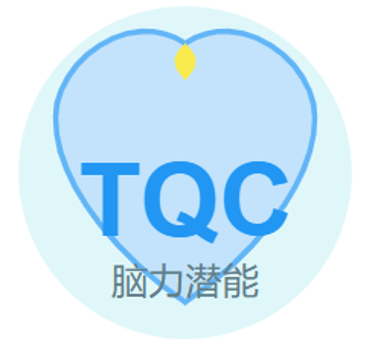特别的限时优惠。立即行动!
Special Limited-Time Offer. Act Now!
Applying Your TQC Brain Profile to College Applications
College applications stressing you out? Use your TQC Genius Brain Analysis to craft unique essays, choose programs, and highlight your true potential to admissions committees.
Nicole
10/8/20253 min read


The college application process can feel like a grueling marathon. You're trying to showcase your best self, stand out from thousands of other equally talented students, and somehow convince an admissions committee that you're not just a set of grades and test scores, but a unique, valuable addition to their campus.
It's easy to get lost in the sea of generic advice: "write a compelling essay," "highlight your extracurriculars," "show your passion." But how do you make these things truly yours and genuinely reflect who you are and what you're capable of?
This is where your TQC Genius Brain Analysis becomes your ultimate cheat sheet. It provides the deep self-knowledge you need to craft an application that authentically highlights your unique strengths, chosen academic path, and future potential – making you irresistible to the right colleges.
Beyond the Numbers: Showcasing Your Authentic Self
Colleges aren't just looking for high GPAs and test scores; they're looking for individuals who will contribute meaningfully to their community. Your TQC profile helps you articulate how you're uniquely wired to do just that.
Here's how to apply your TQC Brain Profile to key aspects of your college application:
Crafting a Stand-Out Personal Essay:
TQC Insight: Your analysis reveals your natural communication style (e.g., highly logical and structured, creatively narrative, empathetically reflective). It also highlights your core talents and motivations.
Application Advantage: Instead of trying to force a generic "overcoming adversity" story, write an essay that leverages your natural voice and showcases a talent or a way of thinking that is uniquely yours. For example, a Global Thinker might excel at weaving a creative narrative, while a Sequential Thinker might present a complex problem and its logical solution. Use your unique aptitudes as the core of your story.
Selecting the Right Programs & Majors:
TQC Insight: Your profile clearly identifies your innate learning styles, cognitive strengths (e.g., analytical, intuitive, spatial), and preferred work environments.
Application Advantage: Use this to confidently explain why you are applying to a specific major or program. Instead of just saying "I like science," a TQC-informed applicant might say, "My TQC analysis reveals a strong aptitude for detailed, sequential problem-solving, which draws me to the precise methodologies of biochemical research." This shows self-awareness and intentionality.
Highlighting Extracurricular Activities:
TQC Insight: Your TQC report explains why you are drawn to certain activities. Did you lead a club because of strong interpersonal leadership skills? Did you excel in debate due to your logical processing?
Application Advantage: Don't just list activities; explain the impact you had and how your unique talents contributed. "My natural empathetic communication, highlighted by TQC, allowed me to effectively mediate conflicts as Peer Counselor President..." is far more impactful than just "Peer Counselor President."
Preparing for Interviews (if applicable):
TQC Insight: Understanding your communication style, how you process questions, and your energy levels can help you prepare for interview settings.
Application Advantage: If you know you're a deep processor, you can practice taking a moment before answering. If you're highly expressive, you can channel that enthusiasm effectively. You can also confidently discuss your strengths and how they align with the college's values.
Addressing "Weaknesses" (if needed):
TQC Insight: Sometimes, what appears as a "weakness" is simply an area that doesn't align with your natural brain wiring.
Application Advantage: If you feel the need to address a lower grade in a particular subject, you can explain it not as a lack of effort or intelligence, but as a challenge in adapting to a learning style that didn't match your TQC-identified preferences, and then pivot to how you've since learned to adapt or focus on your strengths.
Your TQC Genius Brain Analysis is more than just a report; it's a powerful tool for self-advocacy. By integrating its insights into your college applications, you move beyond generic profiles and present a clear, authentic, and compelling picture of an applicant who truly knows themselves and is ready to make a significant contribution to their chosen academic community. This isn't just about getting in; it's about getting into the right place for you.
TQC 评估
个性化评估助力职业与教育发展
深入了解孩子的天赋优势
助力个性化成长与未来发展
Personalized assessments empower career and educational advancement, providing deep insight into a child's natural talents to foster individualized growth and future development.
地址
Address
订阅我们的电子报
Subscribe To Our Newsletter
© 2025. TQC Genius Brain. All rights reserved.
13a-3a, 3rd Mile Square,
Jalan Klang Lama,
58000 Kuala Lumpur.
重要链接
Important Links
博客 / Blog
隐私政策 / Privacy Policy
服务条款与条件 / Terms & Condition
医疗免责声明 / Medical Disclaimer
